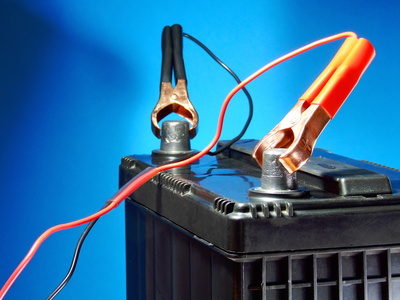Mike's Auto Repair is your resource for everything related to your car battery. Phoenix weather can be put greater than normal strain on your battery due to the excessive heat of our climate. High temperatures can cause a slow discharge of the battery. Because car batteries should always be kept at a full charge, this can ruin your battery over the hottest summer months. Excessive heat can also cause corrosion in the battery plate, causing your vehicle battery to fail prematurely.
 If your car battery won't charge, or does not have enough energy to start your vehicle, you may be confronting battery failure. There are many reasons your vehicle battery can fail; but before we go over some precautions on keeping your battery healthy, let’s go over exactly how a car battery works.
If your car battery won't charge, or does not have enough energy to start your vehicle, you may be confronting battery failure. There are many reasons your vehicle battery can fail; but before we go over some precautions on keeping your battery healthy, let’s go over exactly how a car battery works.
Automotive batteries create an electric charge by a chemical reaction of lead plates, sulfuric acid and water. This combination produces electrons and sends them through conductors to create electricity. Through this process, the chemical reaction causes the surfaces of the lead plates to be coated with lead Sulfate and the electric charge is consumed. Normally this would render the battery unusable; luckily, your vehicle's alternator sends a reversed current of electricity to the battery and reverses the chemical reaction to recharge the battery.
As you can see, your automotive battery is actually quite a sophisticated device, designed to last an extensive amount of time. With proper care, your car battery can serve you well for years. When considering the life of your battery, it is important to remember a few things.
- Batteries should remain fully charged at all times. An undercharged battery is consistently going through the process of "sulfation". This discharges the battery and will eventually stop it from working. The longer the battery stays undercharged, the greater the damage.
- Corrosion of the conductive posts increases electrical resistance when transferring a charge to your vehicle. This can cause your vehicle to have trouble starting and waste the life of the battery. This is important because the slower your battery is discharged, the longer it will maintain full functionality.
- Overcharging your battery is dangerous and can potentially cause other car problems. Battery overcharging releases Hydrogen gas. If the overcharge is only by a small amount, vents on the sides of the battery cells will dissipate the gas. However, should the overcharge be severe, or if the battery is faulty or damaged it will retain this gas and your battery will begin to swell. A swollen battery is carrying enough hydrogen gas to facilitate an explosion, should a spark occur inside the battery.
When purchasing a battery, it is important to keep two things in mind. Some batteries are equipped with different voltage. This is because some vehicles have different requirements for voltage necessary to start the engine. Additionally, it is recommended that a battery be installed no later than one year from its date of manufacture. This can usually be determined by a sticker located on the battery.
At Mike’s Auto Repair, we understand that most drivers don’t really want to go through the hassle of working with their vehicle batteries. Should you notice that your battery is acting a little strangely or you begin having difficulty starting your vehicle, feel free to stop by the shop and we will be glad to test your battery for potential problems.
